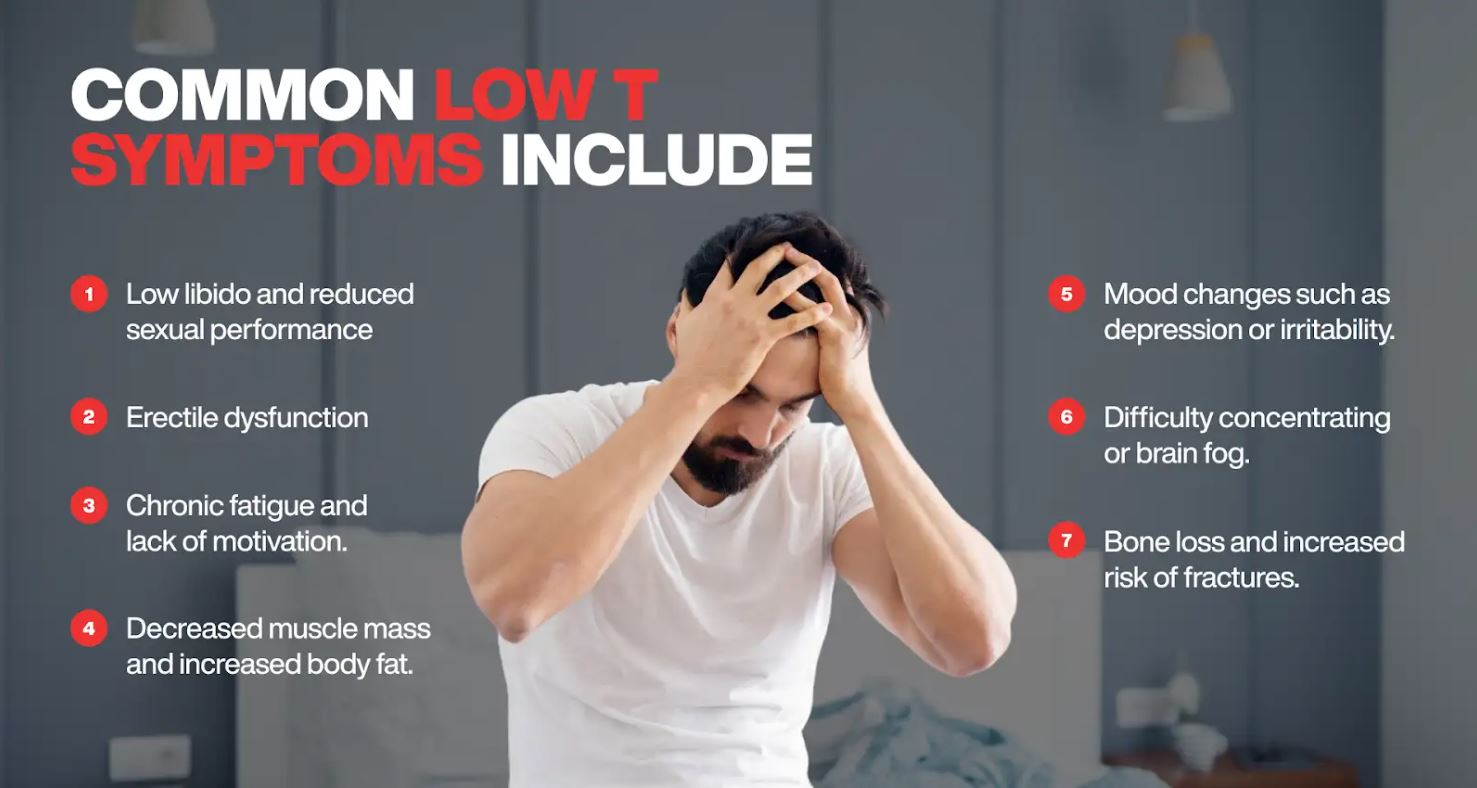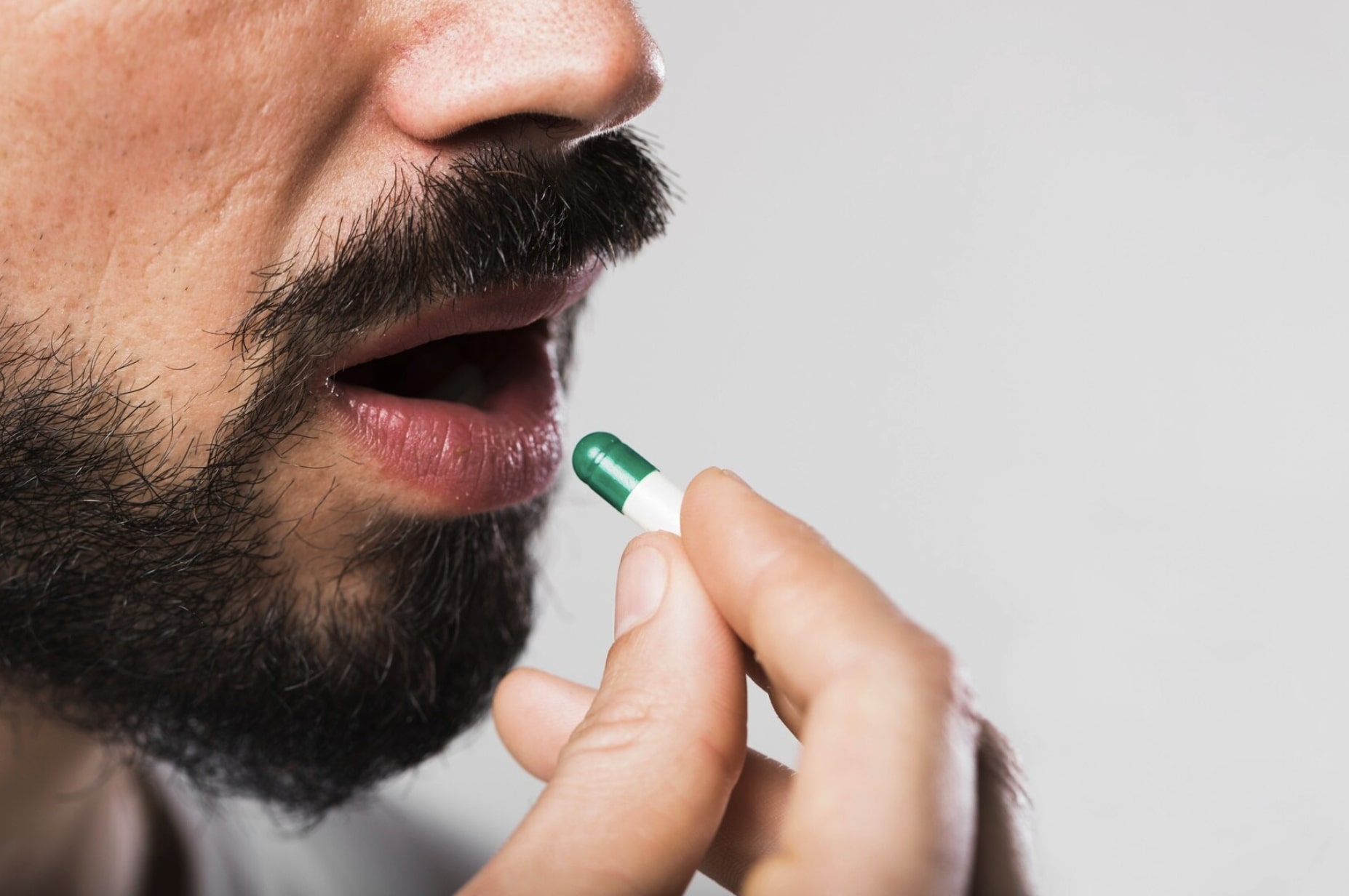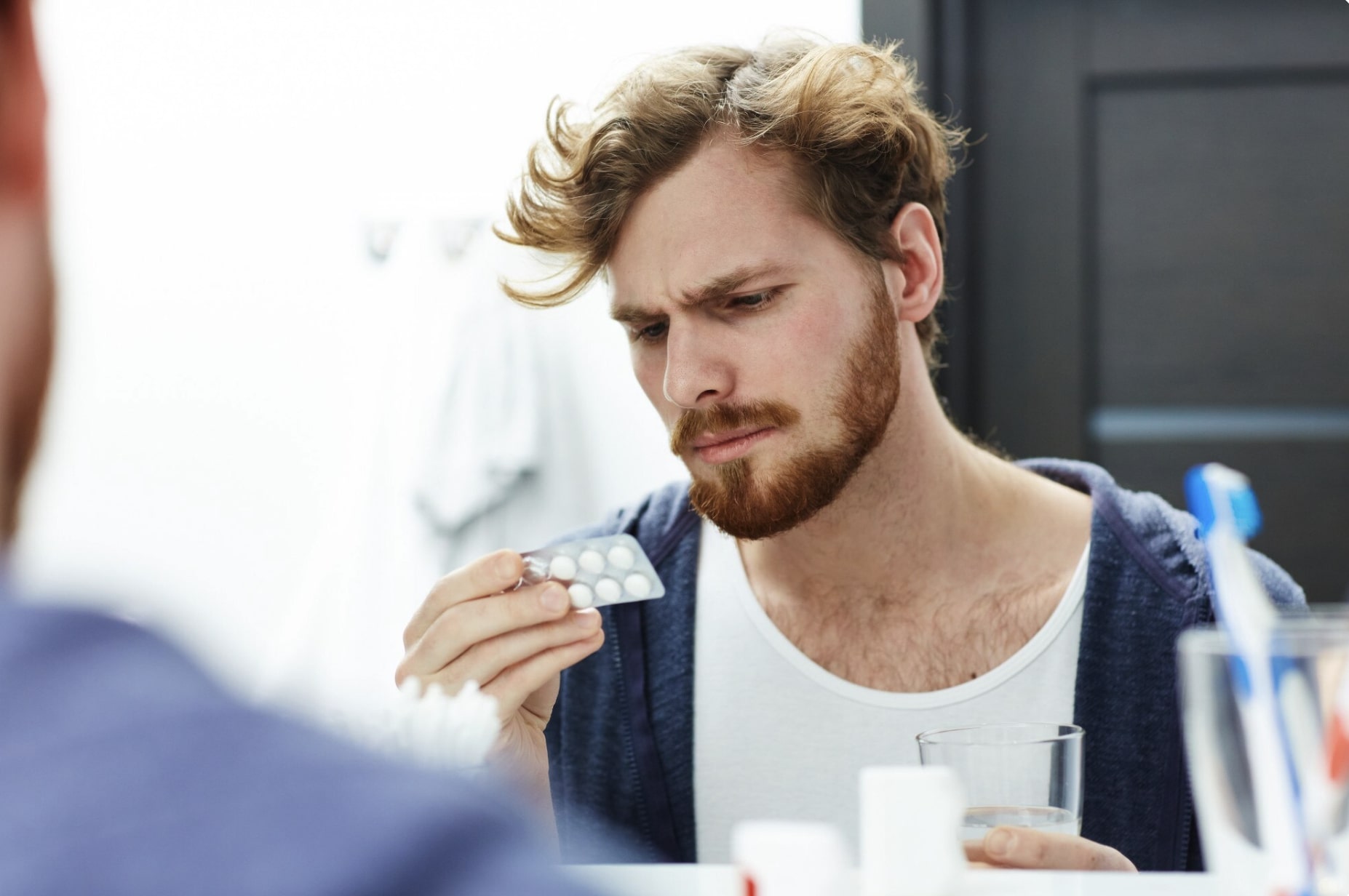Understanding the causes, symptoms & solutions for low-T in men
Low testosterone, also known as hypogonadism, is a condition where the body doesn't produce enough of the hormone testosterone. While gradually declining testosterone is a natural part of aging, some men experience levels of low testosterone (also called low T) that are low enough to affect their health, energy level, and overall quality of life.
In this guide, we’ll explore what testosterone is, what causes it to decline, how to recognize the symptoms, how it's diagnosed, and what treatment options are available. We’ll also explain how Gameday Men’s Health can provide high-quality care and treatment for men dealing with low testosterone.
What Is Testosterone & Why It Matters
Testosterone is the primary male sex hormone, playing a crucial role in a range of bodily functions. It helps regulate muscle mass and strength, bone density, libido and sexual function, mood and mental clarity, and even red blood cell production. (1)
Testosterone levels are highest during adolescence and early adulthood. Most doctors agree that a healthy adult male will typically have a testosterone level between 10 and 35 nanomoles per liter (nmol/L)..
While levels below 10 nmol/L may require further investigation, a low reading by itself isn’t necessarily reason to worry, as the exact number of the reading may be affected by several factors, such as the time of day the test is performed. (2)
However, if you’re experiencing symptoms that go with low testosterone, such as erectile dysfunction, low libido, reduced energy levels, or decreased muscle mass, further treatment may be needed.
What Causes Low Testosterone?
There isn’t one single cause of low testosterone. Instead, it often results from a combination of age-related changes, medical conditions, and lifestyle factors.
Age and Lifestyle
Male hypogonadism is a condition you can be born with, but it also may develop later in life. (3)
Testosterone naturally declines with age—about 1 percent per year after age 30, and more than a third of men over the age of 45 may have testosterone levels that fall below normal. (4)
However, the decline of testosterone can be accelerated by a variety of factors such as poor sleep, lack of physical activity, chronic stress, obesity, poor nutrition, and high alcohol intake, which can lead to a drop in testosterone levels that exceeds the normal age-related decline for aging men.
Medical Conditions
There are two main types of hypogonadism: primary and secondary.
Primary hypogonadism originates in the testes. Some potential causes of primary hypogonadism include Klinefelter’s syndrome, undescended testicles, mumps orchitis, testicular injury, cancer treatment or normal aging. (5)
Secondary hypogonadism originates in the brain, typically due to problems in the hypothalamus or pituitary gland. Causes of this type include pituitary tumors or dysfunction, head trauma, Kallman syndrome, HIV, obesity, and stress-induced hypogonadism. (5)
Some studies have also shown that 30-50% of men with type 2 diabetes have lowered circulating testosterone levels. (6)
Other Contributors
Environmental toxins may also contribute to testosterone deficiency. These substances, including BPA found in plastics, phthalates in personal care products, and organophosphate, found in pesticides and herbicides, can interfere with hormone production and signaling. (7). Identifying the root cause is essential for determining the right course of treatment, as addressing these underlying exposures may help restore hormonal balance and improve overall health outcomes.
Recognizing the Symptoms
The symptoms of low testosterone can be wide-ranging, affecting physical, emotional, and sexual health. Some men may experience just one or two symptoms, while others may struggle with several at once.
Common low T symptoms include:
- Low libido and reduced sexual performance.
- Erectile dysfunction.
- Chronic fatigue and lack of motivation.
- Decreased muscle mass and increased body fat.
- Mood changes such as depression or irritability.
- Difficulty concentrating or brain fog.
- Bone loss and increased risk of fractures.
Other potential symptoms for low testosterone include thinning body hair, and difficulty sleeping. (8)
Age-Specific Cues
In younger males, testosterone deficiency may delay puberty or impair development. In adult men, symptoms tend to appear gradually and may be dismissed as normal aging.
However, it’s important to recognize that persistent decline in energy, performance, or mood may be tied to low testosterone. For aging men, understanding the balance between normal aging and treatable low T can be difficult, which is why it’s always best to seek professional testing and guidance, such as at your local Gameday Men’s Health facility.

How Low-T Is Diagnosed
Accurate diagnosis of low testosterone starts with a thorough evaluation. Since testosterone levels fluctuate throughout the day, it's important to measure them correctly.
For younger men, most providers recommend a morning blood test (between 7 and 10 a.m.) when testosterone is at its highest. A second test on a different day is often required to confirm consistently low levels. As you get older, the diurnal change diminishes, lessening the need for testing at specific times.
Your healthcare provider may also order additional lab panels to measure free testosterone (the active form), luteinizing hormone (LH) and follicle-stimulating hormone (FSH), estradiol and prolactin levels, and thyroid function.
This broader testing helps identify whether the root issue is in the testes, brain, or another hormonal pathway.
Treatment Options Explained
Once low testosterone is confirmed by a physician, there are multiple treatment options available, depending on your symptoms, goals, and underlying causes. These include:
Testosterone Replacement Therapy (TRT)
TRT is a popular approach that can help restore testosterone to healthy levels. It can be delivered through weekly or bi-weekly injections, topical gels or creams, skin patches, or implantable pellets.
The benefits of TRT are wide-ranging, and may include improved libido and sexual function, increased energy and motivation, enhanced muscle strength and body composition, and better mood and mental focus. However, it’s important to note that exact results will vary from each individual patient. (9)
Although side effects of TRT are often minimal, they may include acne and oily skin, worsening of sleep apnea, increased red blood cell count, and fertility suppression. (9)
Consistent monitoring during testosterone therapy is essential. Regular lab work and check-ins with a medical professional, such as those at your local Gameday clinic, help ensure the benefits are outweighing any potential risks before, during, or after your treatment. Your clinician can also help ensure you’re receiving the proper TRT dosage depending on your body goals, age, and health history.
Alternative Therapies
For men looking to explore non-TRT options, alternatives may include treatments such as human chorionic gonadotropin (hCG), clomiphene citrate (stimulates natural production), and aromatase inhibitors.
Each approach to hormone optimization has its own specific advantages and drawbacks, so it’s important to discuss each option with a doctor to see which is the right fit for your specific body needs and health goals.
Lifestyle First: Natural Improvement Strategies
While testosterone treatment can be highly effective, there are also natural lifestyle strategies that can be implemented in replacement of or in conjunction with medical treatments. Some lifestyle changes that can naturally support hormone health include:
- Eating a nutrient-rich diet with adequate protein, healthy fats, and micronutrients
- Prioritizing strength training and regular physical activity
- Improving sleep quality and duration
- Reducing stress through mindfulness or counseling
- Losing excess weight, especially visceral fat
It’s also important to avoid alcohol overuse and limit exposure to environmental toxins. These changes won’t cure every case of testosterone deficiency, but they can make a significant impact on overall health.
Why Choose Gameday for Low-T Care
At Gameday Men’s Health, we help take the guesswork out of hormone optimization. Our clinics are built specifically for men and led by medical professionals who specialize in male health and wellness.
Here’s what makes our approach different:
- Fast, in-office testosterone testing with results in minutes.
- Personalized treatment plans based on your symptoms and goals.
- Convenient, discreet care designed around your schedule.
- Ongoing monitoring and support to ensure safe and effective results.
At Gameday, we are not a one-size-fits-all clinic. Our dedicated team works with you to understand what’s really going on inside your body and build a detailed, actionable plan that will help you feel like yourself again and regain control over your health.
Getting Started
Ready to take the first step? At Gameday Men’s Health, we make it easy to get answers and take control of your health.
Visit our Testosterone Health Services page or find your nearest Gameday clinic and call now to schedule your free hormone evaluation today and find out whether low testosterone is holding you back. Start your journey today to feeling better, stronger, and more confident.
References
- Benefits of Testosterone Hormone in the Human Body: A Systematic Review
- Keep Testosterone in Balance
- Male hypogonadism
- Testosterone: What it is and how it affects your health
- Male Hypogonadism
- Effect of Testosterone Treatment on Glucose Metabolism in Men With Type 2 Diabetes: A Randomized Controlled Trial
- Improving Low Testosterone Naturally
- 10 Effects of Low T
- The benefits and risks of testosterone replacement therapy: a review











